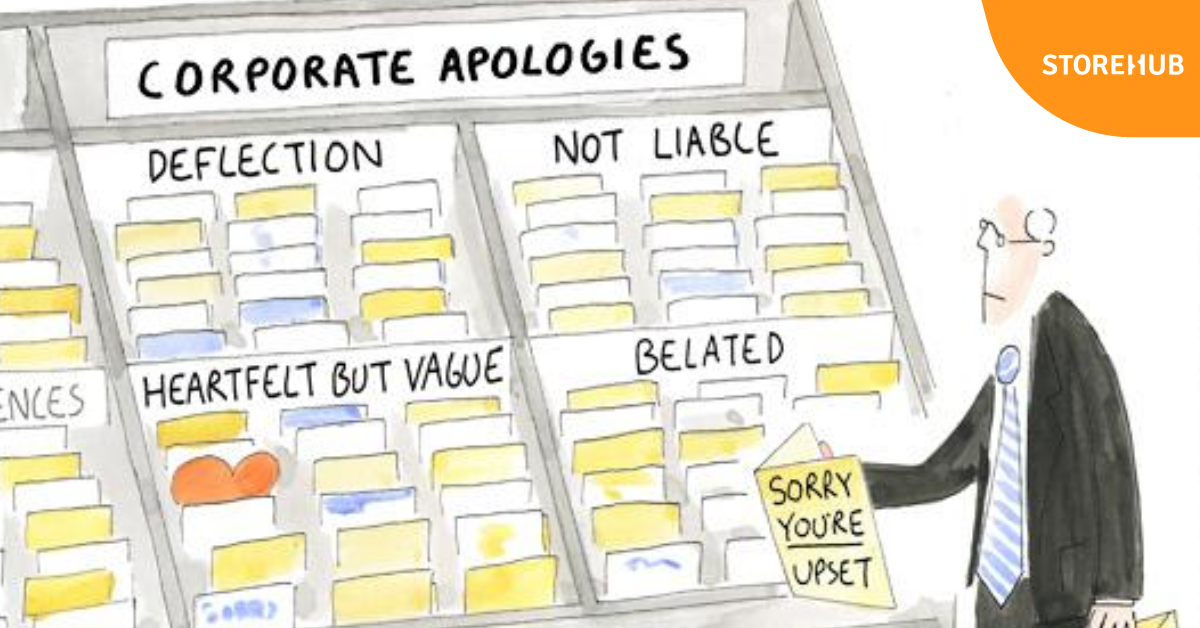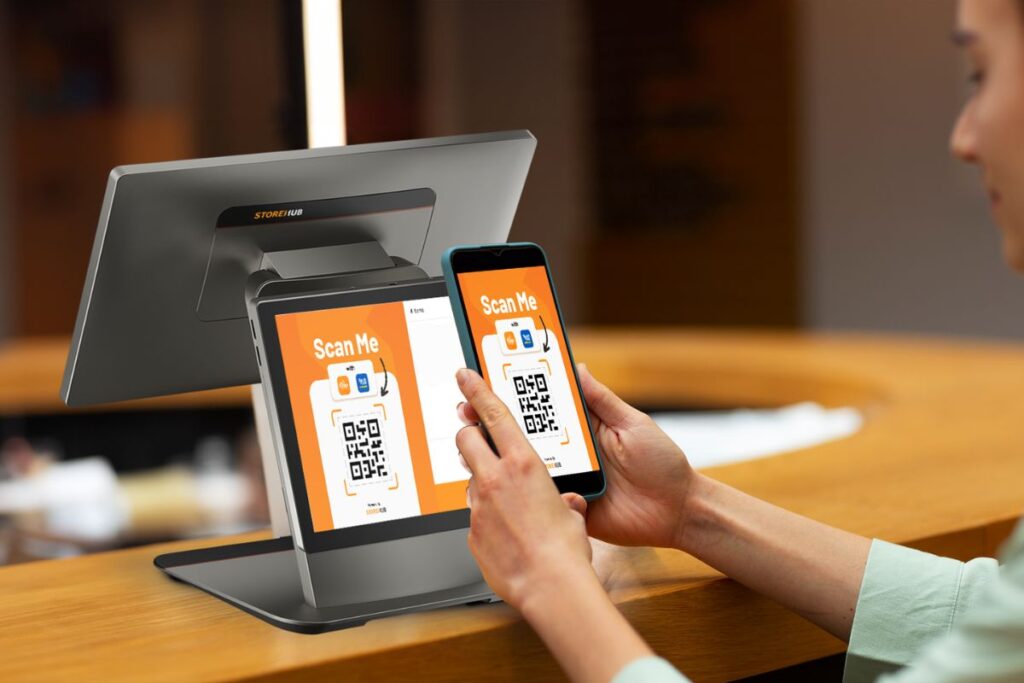In the restaurant industry, unexpected situations can happen at any time and the COVID-19 pandemic is proof of that.
This is why having a solid restaurant/cafe crisis management plan is crucial for business survival.
But first, what is crisis management?
Crisis management refers to the strategies and tactics a business has planned to respond to sudden events that are harmful to the business.
The goal of a restaurant crisis management plan is to ensure that no matter what happens, your F&B business is able to respond and recover as quickly as possible.
What type of crises does an F&B business face?
Crisis situations can threaten your restaurant’s reputation, revenue, stakeholders and employee’s wellbeing.
There are a number of situations that can directly impact the restaurant industry, for example:
Food-borne illnesses – Food-borne illnesses and food poisoning that comes from cross-contamination can get customers extremely sick after eating at your restaurant. If this were to happen, it can have major consequences for your business.
Food hygiene – maintaining a high food hygiene standard is essential. This type of crisis involves something getting into your food, such as a piece of hair or an insect that managed to crawl in.
Bad health inspection rating – as most health inspection scores are posted publicly, getting a poor health rating can spread amongst your customers quickly and can severely impact your business.
Weather-related events – bad weather conditions can prevent your restaurant from operating properly. This could be a strong thunderstorm or a super windy afternoon. If your F&B business has an outdoor seating area, this will be a direct concern.
Criminal activity – this refers to the threat of fraud, robbery or data breach. This could be from internal sources, such as your employees or business partners, or from external sources.
Infectious diseases – much like what was demonstrated by Covid19, an infectious disease is something that is out of your control. Even so, it is crucial to have a crisis plan in place informing customers of the actions taken by your F&B business to keep them and your staff safe.
Effective crisis management begins before disaster strikes.
Crises don’t come announced so being prepared in advance and having a set of strategies to respond whilst remaining in control of the situation is essential in crisis management.
Not sure where to start?
Don’t worry!
We have created a step-by-step guide on the best ways to create a crisis management plan for your F&B business.
Step 1: Create a crisis management team

First things first, you need to form a crisis management team. This is a group of trusted employees that are capable of handling stressful and unexpected situations.
It is recommended to have one representative from each sub-team in the crisis team.
For example:
- Owner
- Manager
- Shift leader
- Sous chef
- Serving staff.
This is to ensure that all staff members feel represented and it also makes it easier to pass on messages regarding crisis procedures.
Step 2: Assign roles and responsibilities

Now it’s time to start allocating roles and responsibilities to the crisis team members!
There are a few main roles that need to be fulfilled:
1. Team leader – responsible for all internal communication about the crisis management plan and the execution of it.
2. Spokesperson – responsible for all external communication and will act as a liaison to the public and media during a time of crisis. This person needs to ensure that they are able to control the narrative, instead of letting the narrative control them.
3. Food safety lead – usually held by kitchen staff. This person will be responsible for any food handling issues.
Step 3: Set up communication systems

Remember, communication is key!
During a crisis, the last thing that you’ll want happening is everyone not knowing what to do. This is why it’s essential that everyone is kept up to date and aware of what’s going on.
Here are a few tips for communication success:
- Implement a messaging system to ensure that all update statuses are communicated to every staff member. The easiest way for this to be done is by having a group chat or group SMS chain.
- Have a procedure in place to communicate with your suppliers or family members of staff in extreme cases.
- Only allow the spokesperson to make announcements to the public. As they will be representing your brand, they need to maintain a level-headed and professional attitude when making public announcements.
Step 4: Pre-planning for potential crises

Even though the crisis may not have happened yet, it is advisable to have a simple pre-prepared plan that can later be adapted and used in any situation.
This could include:
- Preparing extra supplies e.g. canned food, first aid kits, fire extinguishers etc.
- Having an amount of money put aside for emergency situations
- Drafting a media statement
- Have the internal communication systems set up
- Have procedures in place for evacuation
This can just be a basic outline, which can then be further adapted and changed whenever a crisis does occur.
After all, you don’t want to be panicking whenever disaster does strike right?
This will help save time in the event of an emergency as there will be an outline to go off.
Step 5: Honesty is the best policy

During any crisis, it is important to be as upfront and honest as possible.
If your restaurant made a mistake or something bad has happened, you need to admit fault and take accountability for the company’s actions.
Yes, this may make your business look bad in the moment, but your customers will appreciate the honesty and it will allow them to move on knowing you have taken responsibility for your actions.
Example: Bad health inspection score
Don’t
- Accept it and be honest with your customers about it.
- Don’t try to deny, lie or transfer the blame onto other parties.
- This will have a major negative impact on your business in the long run when the truth does come out.
Do
- Redirect the conversation to how your business is planning to overcome this low health score
- Outline steps you are taking moving forward
Step 6: Apologise and solve the problem

Following a restaurant crisis, it is essential to sincerely apologise to your stakeholders, customers and the general public.
When apologising, make sure to reassure customers and suppliers that you value their trust and loyalty.
In the apology, you should also outline the necessary steps that your F&B business is taking to resolve the issue, along with preventative measures that will be undertaken to ensure that it does not happen again.
For example, if a few customers get sick after eating at your restaurant you will want to:
- Make a formal announcement apologising for the incident
- Add the steps you’ll be taking to prevent it from happening ever again
- This could be doing a full evaluation of all ingredients, disposing of the infected ingredient, retraining kitchen staff, switching suppliers and so on
By doing this, it shows customers that your apology is sincere and that you’re taking steps to improve the situation whilst winning back their trust.
After all, action speaks louder than words right?
Step 7: Be proactive but stay calm

During the crisis, quickly gather your team and review the situation to see where procedures can be put in place, improved or removed.
Even though it is easy to freak out in the event of an emergency, it is important to stay calm, remain positive and work efficiently to resolve the situation.
Why?
Staying calm ensures that you won’t act irrationally or act before you’ve had a chance to think things through.
If not, you could potentially make a bad situation worse.
Crises in the food industry can quickly spread and get out of hand, so it is important to be proactive and make sure that your crisis management team gets in front of the problem when it occurs.
How?
Social media!
Social media gives you the platform to instantly communicate with the public. Use this to your advantage by issuing an immediate response and making sure that you get to the press before any outside sources do.
By doing this, it gives the perception that your brand is taking action and not avoiding the issue.
Always remember to remain professional yet positive in your response. Empathise with your customers and avoid being defensive.
Final Thoughts
If COVID-19 has taught us anything, it’s reminded everyone that running a business doesn’t come without risks.
In the F&B industry, you should always expect the unexpected to occur.
For your business to successfully get through any crisis, you’ll need a solid restaurant crisis management plan detailing the necessary steps to minimise damage.
When creating your crisis management plan, try to avoid these common mistakes:
- Taking too long to respond
- Releasing insincere statements
- Denying the severity of the crisis (no matter how big or small)
- Not taking responsibility for your actions
- Trying to pass the blame onto someone else
- Avoiding the media
Final word of advice:
Be resilient and never give up!
There’s nothing more powerful than having the ability to bounce back after a catastrophe.
Get your F&B business ready for the future with StoreHub





